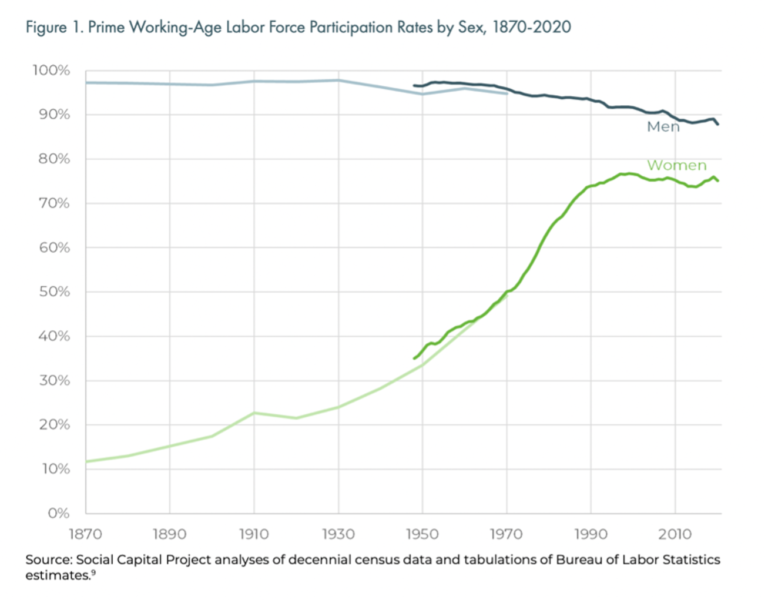Joseph Lawler of the Washington Examiner reports on a new study that defends the 1996 federal welfare reform law against its present-day left-of-center critics.
A new analysis has rejected one of the popular criticisms of the 1996 welfare reform, namely that it led to an increase in deep poverty by preventing some single-mother households from receiving government help.
Instead, government data indicates that poverty fell overall, without any increase in deep poverty, when government benefits and tax credits are taken into account and inflation is properly accounted for, according to new research from the conservative Manhattan Institute.
Lawmakers “should reject the increasingly conventional view that extreme poverty has dramatically increased and the view that welfare reform did more harm than good,” concludes the report, published Monday to mark the 20th anniversary of President Bill Clinton signing the reform legislation.
Scott Winship, the report’s author, said in an interview with the Washington Examiner that he was motivated to study trends in deep poverty because he has been “appalled” by recent efforts to recast the 1996 reform, which instituted time limits and work requirements on cash welfare, as a disaster.
Much of the criticism of the law has been spurred by the publication of a new book, $2.00 a Day: Living on Almost Nothing in America, written by prominent Johns Hopkins sociologist Kathryn Edin, with Michigan professor Luke Shaefer. The book suggests millions of children live in families getting by on less than $2 a day and that the welfare reform law is to blame for forcing more people into such terrible situations.
Winship, however, finds in his study of the data that there were practically no children of single mothers in extreme poverty at the time welfare reform was signed in 1996, and that the same was true in 2012, the last year for which data was available.
The problem with the claim that extreme, $2-a-day poverty has risen, Winship claims, is that it fails to take into account the non-cash government benefits that have replaced cash welfare, it ignores the growth of low-income tax credits and it improperly accounts for inflation.


